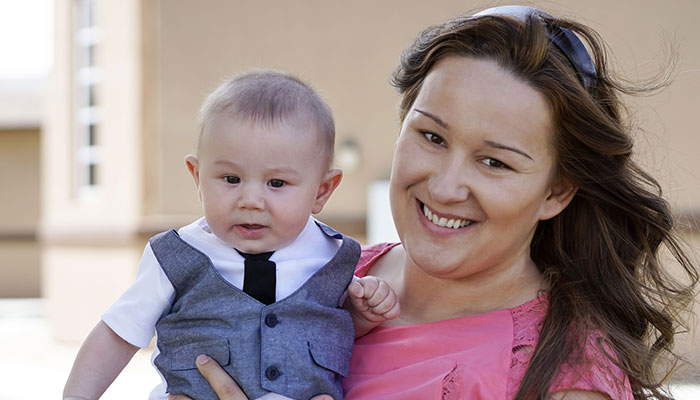After Birth: What To Expect
Christine Sweeney, LICSW Program Manager, Parent Connection, BIDMC
AUGUST 24, 2020
 If you are lucky and have friends who are not afraid to speak openly and directly, you might have some idea of what to expect after you give birth. The majority of women, however, are focused on baby, anticipating breastfeeding, thinking about items needed to swaddle, soothe or hopefully lull baby into a nice deep sleep. Most of us, wrapped up in the excitement of finally getting to meet our little ones, don't give much thought about what to expect in the days following delivery regarding our own physical healing.
If you are lucky and have friends who are not afraid to speak openly and directly, you might have some idea of what to expect after you give birth. The majority of women, however, are focused on baby, anticipating breastfeeding, thinking about items needed to swaddle, soothe or hopefully lull baby into a nice deep sleep. Most of us, wrapped up in the excitement of finally getting to meet our little ones, don't give much thought about what to expect in the days following delivery regarding our own physical healing.
Whether you deliver vaginally or via C-section, your body will undergo hormonal changes as you shift from a state of pregnancy to making milk (whether you intend to breastfeed or not.) You may have thought that contractions only happened during delivery, but — surprise! — contractions continue after your delivery to help your uterus slowly shrink back to its normal/pre-pregnancy size. These contractions can be especially painful and occur during breastfeeding, so don't be alarmed. This is normal and should diminish by six weeks.
Your pelvic floor muscles stretch during delivery and that can mean urine leakage especially when sneezing, coughing or even laughing. So do your Kegel exercises, and if the situation persists, don't wait to see a doctor that specializes in pelvic floor health.
Hormonal shifts can cause mood swings and symptoms can range from mild to more severe. Most people are aware of postpartum depression, but most are unaware that there's a range of symptoms and mood disorders associated with pregnancy and the postpartum period that are quite common.
It's estimated that one in seven new moms (or partners) may experience a perinatal mood disorder. Most important to note is that treatment works, whether it's getting more support, reducing the isolation that is so hard in the postpartum period (especially now, in the midst of the current pandemic), or seeing a therapist that specializes in treating these disorders.
The newborn period is tough enough, but when you are experiencing an untreated medical issue, it's all that much harder. For a better understanding of signs and symptoms associated with pre/postpartum mood disorders, visit Postpartum Support International's website.
And then there are hemorrhoids — very common, very uncomfortable, and even more uncomfortable to talk about. But trust me on this: take a daily stool softener and use those witch hazel wipes.
Your bottom, your boobs, and your nipples are tender, sensitive and leaking. Your body doesn't feel like your own, and while you expected that while you were pregnant, it's often not what we expected after delivery. Sure, we expected there would be some pounds to loss, some abs that we were anxious to get back into shape, but this tender, leaking state — -that wasn't part of the picture and sure isn't sexy.
Speaking of sex, that's going to take a while too, lots of communication, lubricant and patience on the part of you and your partner.
And then there's the hair loss, which can, go on for several months, but will eventually stop without you going completely bald.
It’s a lot, and this is all the common stuff that doesn't even account for complications in delivery that may complicate your recovery, all of which you are trying to manage while sleep deprived and learning to care for your baby.
My advice: be patient, go gently. Know that this is a time to honor your body's healing and your adjustment to a new role, characterized by learning as you go. You will find your way eventually, there is no fast forwarding this transition to parenting, and no one "right" way to do it. The "right" way is your own way, and that's a work in progress.

